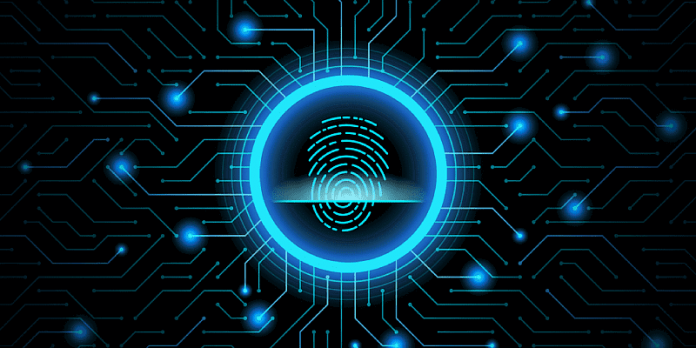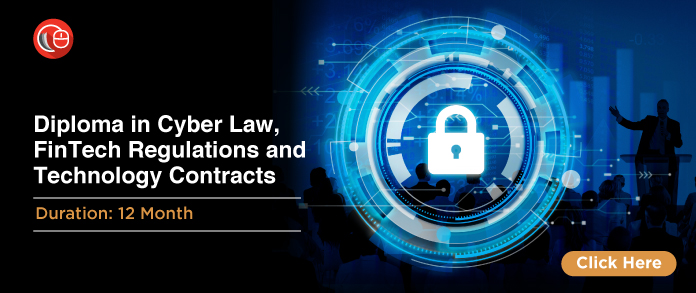This article is written by Vinay Kumar Palreddy, from Symbiosis Law School, Hyderabad. In this article, he enumerates and explains the IPC provisions which are applicable to certain cybercrimes and the punishments for the same.
Table of Contents
Introduction
The advent of the computer is one of such remarkable innovations because it has determined the living culture of today’s humans. The individuals from every age group and the organization’s functioning in any kind of industry have become users of computers. Rather than giving a narrow definition to the term ‘computer’, Section 2(I)(i) the IT Act, 2000 was drafted in such a manner to include all the kinds of processing devices, computer networks, storage, and software. It includes mobiles, smart devices, cameras, e-readers, etc. This technology has become the soul and essence of many activities happening in the world.
Though the invention of the computer has numerous benefits like data storage, transfer of information, and effectively contributed to making human life easier, there are negative facets involved with the same device which affect life miserably. Herein, the attention must be drawn to the fact that negative facets are the results of the misuse by very limited people and have nothing to do with the invention itself. The possibility of misuse imbibed with the computer has taken various shapes and some of such activities that are criminal in nature are recognized as ‘cybercrimes’. This kind of crime has become a major area of concern across all the countries in the world, especially India. This is because of the government’s active drive to achieve digital emancipation in a country where digital unawareness and low literacy are known to exist. This contrast between the state’s aim and present circumstances is directly creating opportunities for cybercriminals. In light of the aforementioned significance, this article deals with the punishments available in the Indian Penal Code, 1860 for various cyber crimes apart from what was mentioned in the IT Act, 2000.
Meaning and history of cyber crimes
The term cybercrime was used for the first time in 1995 by Sussman and Heuston who were renowned legal scholars. The term cybercrime was seen as a collection of conducts and acts rather than a single notion. These conduct usually involve manipulation or infiltration into data or computer systems which amounts to illegal activities. It is also familiar as e-crime, technology crime, information related crime, etc. As the manipulation of computers usually happens through computer networks i.e internet, the term ‘cybercrimes’ has evolved from ‘cyberspace’ which denotes the internet. But cyberspace is not the only platform for the commission of cybercrime but they have even been committed offline i.e software attacks etc. The strange element of cybercrimes, when compared to general crimes, is that the perpetrator and the victim might never have direct contact with each other. The victim for cybercrime might be chosen by the perpetrator by considering certain factors like digital vulnerability, illiteracy, personal agenda, etc. A cybercrime would affect the physical or economic sovereignty, data privacy, social relations, etc of the individuals. For achieving these purposes, the cyber attackers usually choose countries in which the laws and the technology are not developed to an extent that provide mechanisms to catch and punish the perpetrators. As far as India is concerned, the IT Act, 2000 extensively deals with numerous cybercrimes and their punishments. Along with this, the Indian Penal Code, 1860 also contains certain provisions which concern themselves with a number of cybercrimes.
As far as the history of cybercrime is concerned, the first cybercrime was committed within the year of computer invention by Charles Babbage i.e 1820. In that year, Joseph- Marie Jacquard, who was a renowned textile manufacturer in France created a loom in order to repeat the activity of weaving. As the labourers who worked in the factory and did the same activity manually became concerned about the loom as it has threatened the existence of their jobs directly, they sabotaged the loom thus committing a cybercrime. Though this is a raw form of cybercrime, the mechanisms to commit a cybercrime have evolved to a dangerous extent in the last two centuries.
Cyber crimes with IPC implications
Apart from punishments in IT Act, 2000, there are certain crimes that are attracted by IPC provisions as well. The following is the enumeration of the IPC provisions along with various cyber crimes that are attracted by respective Sections and the punishment for the same.
- Section 292 of IPC: Although this Section was drafted to deal with the sale of obscene material, it has evolved in the current digital era to be concerned with various cybercrimes. The publication and transmission of obscene material or sexually explicit act or exploit acts containing children, etc which are in electronic form are also governed by this section. Though the crimes mentioned above seem to be alike, they are recognized as different crimes by the IT Act and IPC. The punishment imposed upon the commission of such acts is imprisonment and fine up to 2 years and Rs. 2000. If any of the aforementioned crimes are committed for the second time, the imprisonment could be up to 5 years and the fine could be imposed up to Rs. 5000.
- Section 354C of IPC: The cybercrime dealt with under this provision is capturing or publication of a picture of private parts or acts of a woman without such person’s consent. This section exclusively deals with the crime of ‘voyeurism’ which also recognizes watching such acts of a woman as a crime. If the essentials of this Section (such as gender) are not satisfied, Section 292 of IPC and Section 66E of IT Act, 2000 is broad enough to take the offenses of a similar kind into consideration. The punishment includes 1 to 3 years of imprisonment for first-time offenders and 3 to 7 years for second-time offenders.
- Section 354D of IPC: This section describes and punishes ‘stalking’ including both physical and cyberstalking. If the woman is being monitored through electronic communication, internet, or email or is being bothered by a person to interact or contact despite her disinterest, it amounts to cyber-stalking. The latter part of the Section states the punishment for this offense as imprisonment extending up to 3 years for the first time and 5 years for the second time along with a fine imposed in both the instances. In the case of Kalandi Charan Lenka v. The State of Odisha, the victim received certain obscene messages from an unknown number which are damaging her character. Moreover, emails were sent and the fake Facebook account was created by the accused which contained morphed pictures of the victim. Hence, the accused was found prima facie guilty for cyberstalking by the High Court under various provisions of IT Act and Section 354D of IPC
- Section 379 of IPC: If a mobile phone, the data from that mobile or the computer hardware is stolen, Section 379 comes into the picture and the punishment for such crime can go up to 3 years of imprisonment or fine or both. But the attention must be given to the fact that these provisions cannot be applied in case the special law i.e IT Act, 2000 provisions are attracted. In this regard, in the case of Gagan Harsh Sharma v. The State of Maharashtra, one of the employers found that the software and data were stolen and someone has breached the computers and gave access to sensitive information to the employees. The employer gave information to the police and they filed a case under Section 379, 408, and Section 420 of IPC and various other IT Act provisions. The question in front of the court is whether the police can file a case under IPC or not. The court decided that the case cannot be filed based on the IPC provisions as the IT Act has an overriding effect.
- Section 411 of IPC: This deals with a crime that follows the offenses committed and punished under Section 379. If anyone receives a stolen mobile phone, computer, or data from the same, they will be punished in accordance with Section 411 of IPC. It is not necessary that the thief must possess the material. Even if it is held by a third party knowing it to be others, this provision will be attracted. The punishment can be imposed in the form of imprisonment which can be extended up to 3 years or fine or both.
- Section 419 and Section 420 of IPC: These are related provisions as they deal with frauds. The crimes of password theft for the purpose of meeting fraudulent objectives or the creation of bogus websites and commission of cyber frauds are certain crimes that are extensively dealt with by these two sections of IPC. On the other hand, email phishing by assuming someone’s identity demanding password is exclusively concerned with Section 419 of IPC. The punishments under these provisions are different based upon the gravity of the committed cybercrime. Section 419 carries a punishment up to 3 years of imprisonment or fine and Section 420 carries up to 7 years of imprisonment or fine.
- Section 465 of IPC: In the usual scenario, the punishment for forgery is dealt with in this provision. In cyberspace, the offenses like email spoofing and preparation of false documents are dealt with and punished under this Section which imbibes the imprisonment reaching up to 2 years or fine or both. In the case of Anil Kumar Srivastava v. Addl Director, MHFW, the petitioner electronically forged signature of AD and later filed a case making false allegations about the same person. The Court held that the petitioner was liable under Section 465 as well as under Section 471 of IPC as the petitioner also tried to use it as a genuine document.
- Section 468 of IPC: If the offenses of email spoofing or the online forgery are committed for the purpose of committing other serious offenses i.e cheating, Section 468 comes into the picture which contains the punishment of seven years of imprisonment or fine or both.
- Section 469 of IPC: If the forgery is committed by anyone solely for the purpose of disreputing a particular person or knowing that such forgery harms the reputation of a person, either in the form of a physical document or through online, electronic forms, he/she can be imposed with the imprisonment up to three years as well as fine.
- Section 500 of IPC: This provision penalizes the defamation of any person. With respect to cybercrimes, sending any kind of defamatory content or abusive messages through email will be attracted by Section 500 of IPC. The imprisonment carried with this Section extends up to 2 years along with fine.
- Section 504 of IPC: If anyone threatens, insults, or tries to provoke another person with the intention of effecting peace through email or any other electronic form, it amounts to an offense under Section 504 of IPC. The punishment for this offense extends up to 2 years of imprisonment or fine or both.
- Section 506 of IPC: If a person tries to criminally intimidate another person either physically or through electronic means with respect to the life of a person, property destruction through fire or chastity of a woman, it will amount to an offense under Section 506 of IPC and punishment of imprisonment where the maximum period is extended up to seven years or fine or both.
- Section 509 of IPC: This Section deals with the offense of uttering a word, showing a gesture, and committing an act that has the potential to harm the modesty of a woman. It also includes the sounds made and the acts committed infringing the privacy of a woman. If this offense is committed either physically or through electronic modes, Section 509 gets attracted and the punishment would be imprisonment of a maximum period of one year or fine or both.
Conclusion
As we already know for a fact that the IT Act, 2000 has an overriding effect over the IPC provisions while governing the cybercrimes, there are a lot of instances where IPC provisions are applied based on the subjective circumstances of every case. Though some people feel that IPC should not have a realm to govern cybercrimes, there are numerous cybercrimes that are not extensively dealt by the IT Act, 2000. Hence, after the due amendments are made to the IT Act which contains with respect to every cybercrime, then the IPC can be withdrawn from governing in the domain of cybercrimes.
References
- https://www.irjet.net/archives/V4/i6/IRJET-V4I6303.pdf
- http://odishapolicecidcb.gov.in/sites/default/files/Relevant%20Penal%20sections%20Cyber%20Crime.pdf
- http://docs.manupatra.in/newsline/articles/Upload/455C1055-C2B6-4839-82AC-5AB08CBA7489.pdf
LawSikho has created a telegram group for exchanging legal knowledge, referrals and various opportunities. You can click on this link and join:
 Serato DJ Crack 2025Serato DJ PRO Crack
Serato DJ Crack 2025Serato DJ PRO Crack










 Allow notifications
Allow notifications


